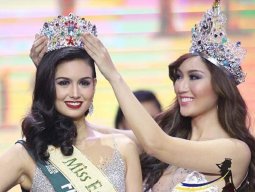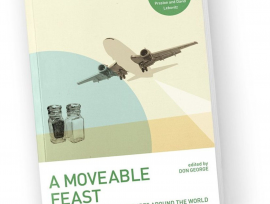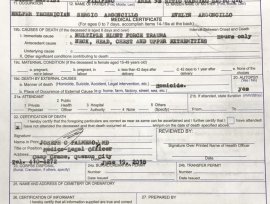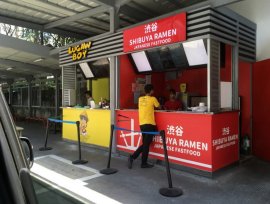Nationalistic Songs In The Philippines - Filipino Songs About Nationalism
What are nationalistic songs in the Philippines? Many songs are referred to as Filipino nationalism songs. They originate from many genres such as poetry, music without lyrics. Some songs are translated from Spanish.
This article on Corner4men.com will give you the Philippine nationalistic songs list and some basic information about these songs.
National Anthem: Lupang Hinirang
The first nationalism song in the Philippines we want to introduce to you is Lupang Hinirang. All Filipinos know this song like the back of their hands as it was established as the country's national anthem in 1956 when the country hosted Ramon Magsaysay as president.
The original song was Spanish. Later, Julian Cruz Balmaceda, Ildefonso Santos and Francisco Caballo translated it into the language of Tagalog.
This song is called Land of the Morning. The song is a Spanish version dated back to 1899. The English version, which is translated by Camilo Osias and A.L. Lane, starts at 1:15. The commonwealth-era conducted this version in 1938.
The Philippine National Anthem (in Español,English & Tagalog)
>>> Related: Examples Of Contemporary Music In The Philippines & Some Popular Artists
Ako'y Isang Pinoy (Song)
Ako'y Isang Pinoy is also one of the Filipino songs about nationalism that we want to mention. The song was composed in the 1970s by a Filipino singer and songwriter-Florante de Leon.
The song is about the patriotism and pride of Filipinos in their own country. In the song, one, one line became famous, that is "Ang hindi raw magmahal sa sariling wika ay higit pa ang amoy sa mabahong isda". It means Filipinos who don't love languages are bad people. The song aims to stimulate patriotism, placing patriotism above other personal profits.
Ako'y Pinoy
Bayan Ko (My Country)
This Tagalog song was originally a poem which was written by Jose de Jesus in the year of 1929. After more than 50 years, in the 1980s, Constancio de Guzman transformed the poem into a song. After that, the song received praise from the people and became famous in the following years, especially during the fight against Ferdinand Marcos's dictatorship. After that, it is considered as a nationalistic song Philippines.
This song is familiar to all Filipinos. It has been engraved in the memories of every person here. Until now, Bayan Kostill brings a feeling of emotional relief, even taking away many people's tears.
Ang Bayan Ko (My Country)
>>> Related: Top FM Radio Stations in the Philippines: Best Places for Music and Entertainment
Ako Ay Pilipino (Song)
The next song is Ako ay Pilipino which means I am Filipino. This song is performed by Kuh Ledesma - a Filipina singer. The message of the song tells itself about the pride and the true identity of Maharlikan Culture.
This song is written by George Canseco under the authorization of First Lady Imelda Marcos, who loves it a lot.
Ako Ay Pilipino lyrics with Kuh Ledesma
National Anthem Of The Philippines (Spanish)
Regarding the origin of the song, it was composed to be played during the 1898 parade of the Philippines proclamation ceremony. However, at this time, the song did not have a lyric.
About a year later, the poem Filipinas, which was written by a young soldier named Jose Palma, was born and sung along with the Marcha song.
This poem with elegant Spanish verses shows the great patriotism and fighting spirit of the Filipino people. It became the words of nationalistic songs Filipino.
The Philippine National Anthem (in Español,English & Tagalog)
>>> Related: Social Classes In The Philippines Pre-Colonial: Find Out Here
Mambo, Mambo Magsaysay – Mabuhay!
This song comes with a catchy tune and the witty and funny Taglish wordplay. Therefore, the song Mambo, Mambo Magsaysay is still popular today.
Mambo magsaysay
Jocelynang Baliwag (Kundiman)
Jocelyn Wang Baliwag is the next name on this list. During the Tagalog revolutionaries against the Spanish colonial rule, this is the song most used to encourage the spirit of fighting. Therefore, it is also known as Kundiman of the Revolution.
JOCELYNANG BALIWAG-KUNDIMAN OF THE REVOLUTION (Philippine History)
Filipino nationalism songs: Verdict
There are many nationalistic songs in the Philippines. They can be different by expression, origin, melody, or lyrics. But overall, at some point, they were in common use. It reminds the Filipinos of important events in the past and stimulates people's love for the country.
After reading this article, we hope that you will get to know more about Filipino nationalistic songs and composers.
Thank you for your time!
recent articles

Top 5 Most Beautiful Woman In The Philippines - The Finals
Are you seeking the latest top 5 most beautiful woman in the Philippines? Wonder who has the most charming beauty? Keep reading to find out!

Top Types of Jeans Brands
Have you heard of the world's most famous jeans brands? Which brand will have products that complement your personal style? Let’s find out the top 5 best types of jeans brands.

Top best airbnb Philippines you shouldn't miss
Airbnb is the most popular accommodation service today. You can find a variety of accommodations according to your needs.









